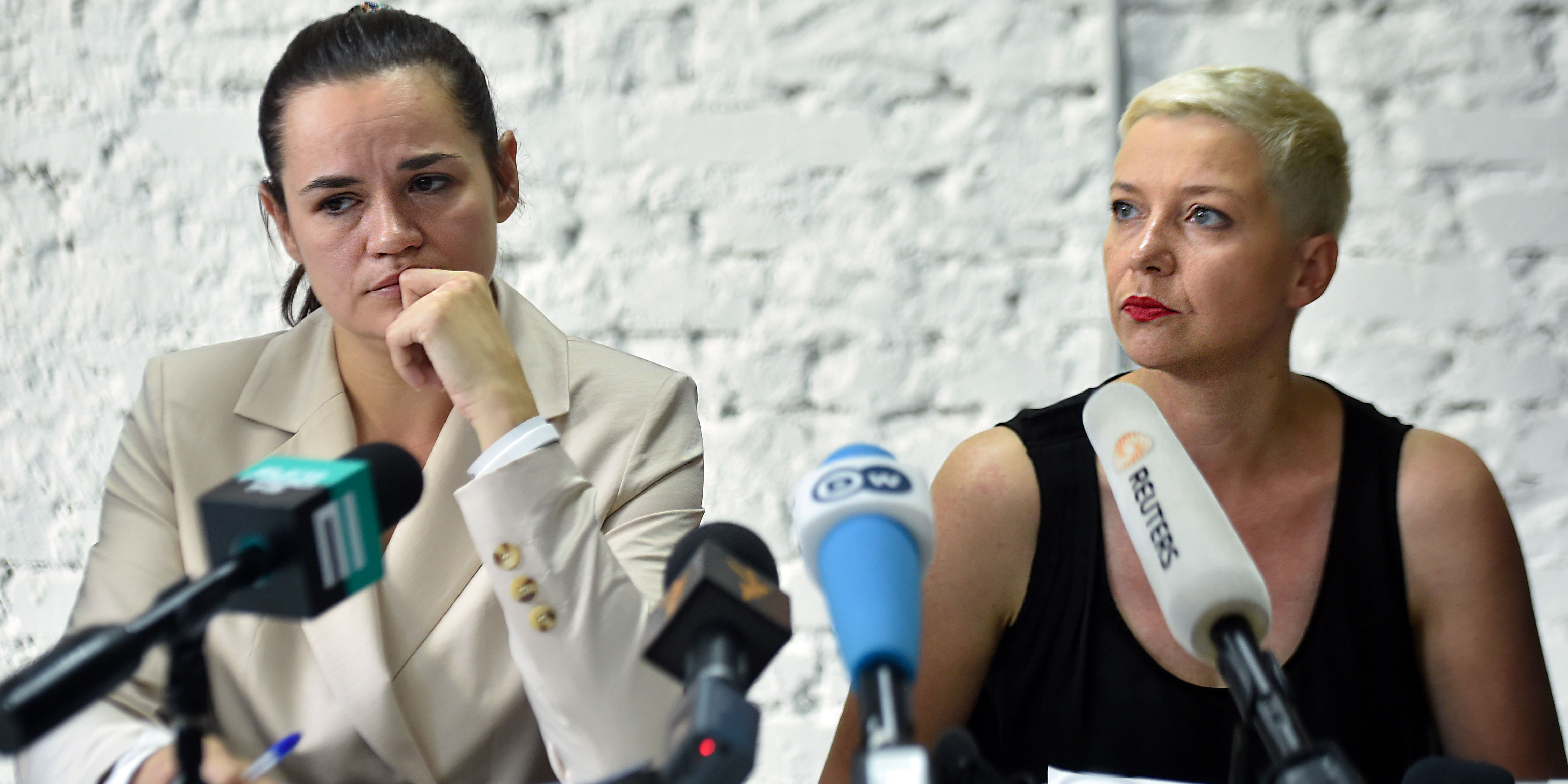Opponent Svetlana Tikhanovskaya, presidential rival to the authoritarian Belarusian president, fled to Lithuania on Tuesday, after a second night of violently suppressed protests against power resulting in one death. Lithuanian Foreign Minister Linas Linkevicius told AFP on Tuesday that Tikhanovskaya was "safe" in his country. Monday evening, his team had indicated that the opponent was unreachable and untraceable since leaving the Electoral Commission, where she had been held for hours, when she had come to file a complaint for electoral fraud.
Svetlana Tikhanovskaya, new to politics, has emerged in a matter of weeks as an unexpected rival against Alexander Lukashenko, 65, in power for 26 years. She had replaced her husband, Sergei, a prominent video blogger, in the presidential race after he was jailed in May. After the poll on Sunday, she had ordered the regime to "cede power", contesting the official results giving the outgoing president the winner with 80.08% of the vote and only giving him 10%.
She nevertheless refused to participate in the demonstrations violently repressed Sunday and Monday evening by the riot police, which two nights in a row used sound grenades, rubber bullets and made a number of arrests to quell protests in Minsk. For Tuesday, calls for a general strike were circulating on social networks.
Barricades and a dead man
On Monday night, thousands of people demonstrated in Minsk and tried to erect barricades in some central streets of the capital. A protester was killed by the explosive device he was about to throw at the police, and which exploded in his hands, according to Belarusian police.
Shouting “Shame!”, The demonstrators faced large police forces who also responded with kicks and batons, according to AFP journalists and witnesses. In recent days, the authorities have also stepped up pressure against Svetlana Tikhanovskaya's team, arresting around ten of her collaborators. One of her allies, Veronika Tsepkalo, wife of a banned presidential opponent, fled Belarus on Sunday for Russia.
Over 3,000 people were then arrested. The Belarusian president called the demonstrators "sheep" guided from London, Warsaw and Prague, insisting that he would not allow the country to be "torn to pieces". He also vowed to "turn the brain right" to those who challenge him. Already in 2010, after the presidential election, opposition demonstrations were severely repressed.
Western convictions
Abroad, the European Commission, Paris, Berlin and London condemned the repression and called on Minsk to restrain. Germany raised the possibility of sanctions. Warsaw has called for an EU summit devoted to the subject and Washington said it was "greatly concerned".
Conversely, the Russian and Chinese leaders, Vladimir Putin and Xi Jinping, congratulated President Lukashenko. The latter had, however, accused Moscow of wanting to vassalize his country and seek to destabilize it. Moscow nonetheless denounced arrests of Russian journalists and demanded the release of 33 Russians presented since the end of July by Minsk as mercenaries working with the opposition.
The electoral campaign had been marked by an unprecedented fervor for the candidate of Tikhanovskaya. Before his candidacy emerged, Alexander Lukashenko's main rivals had been sidelined. Two are imprisoned, including the opponent's husband. The mobilization took place against a backdrop of economic difficulties, aggravated by tensions with Russia, and Alexander Lukashenko's response to the coronavirus epidemic, which he described as "psychosis".

